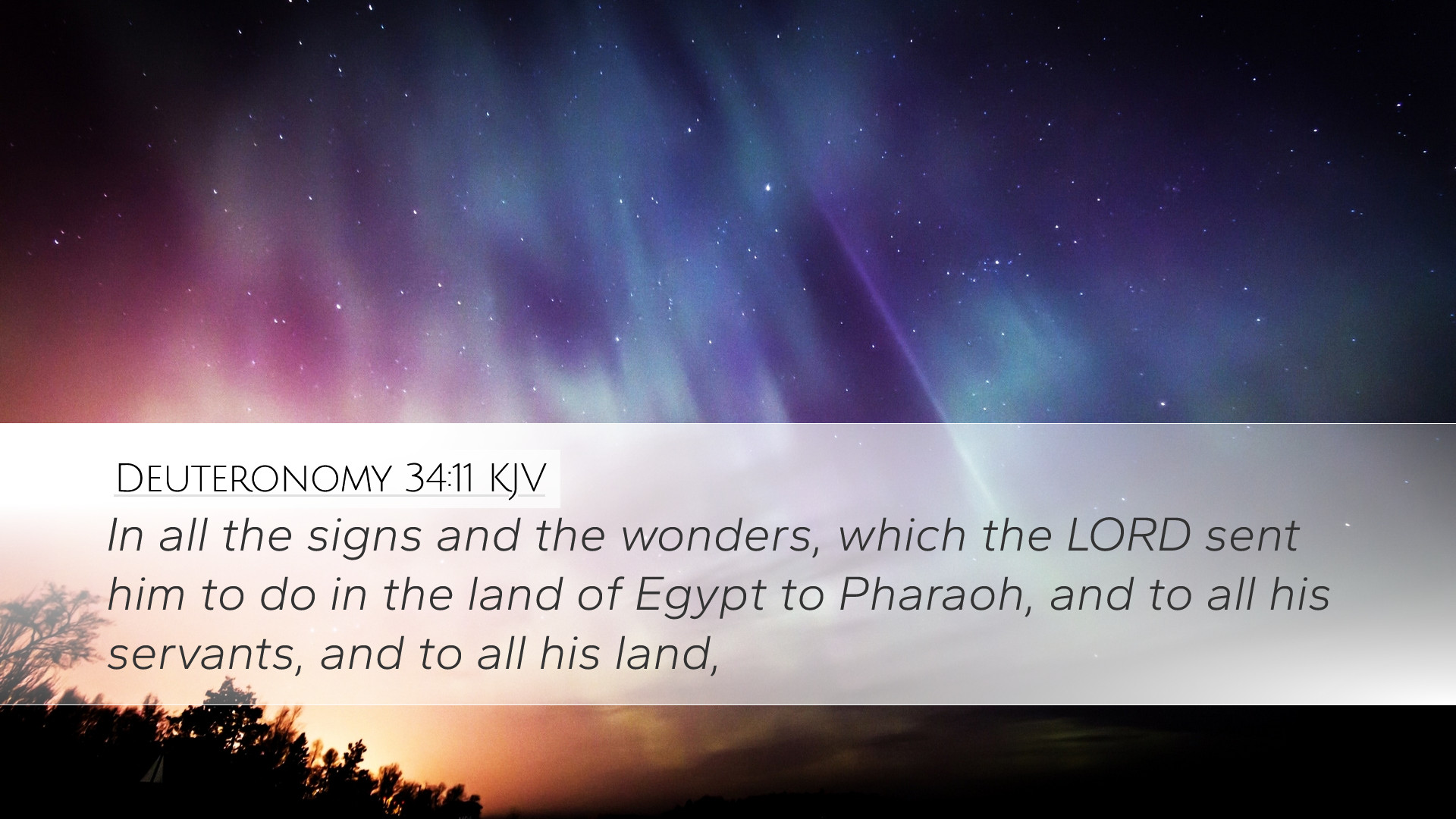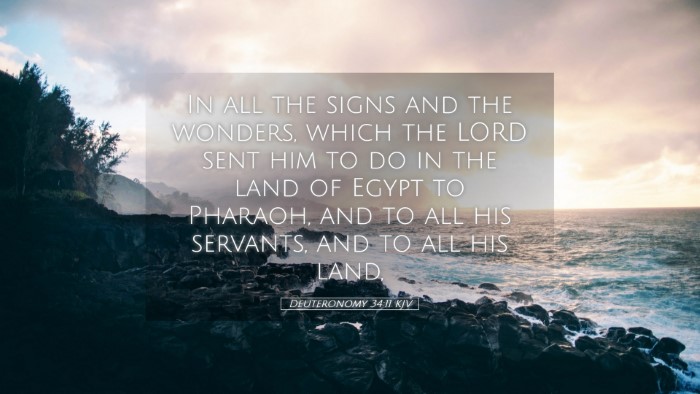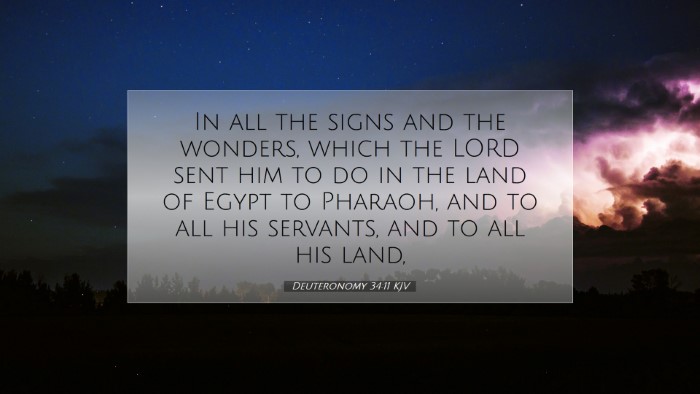Commentary on Deuteronomy 34:11
Deuteronomy 34:11 states, "And there arose not a prophet since in Israel like unto Moses, whom the Lord knew face to face." This verse concludes the Pentateuch by reflecting on the unique relationship the Prophet Moses had with God. It serves as a pivotal reminder of Moses' unparalleled role in the history of Israel and sets the stage for understanding the significance of prophetic leadership in the biblical narrative.
Contextual Overview
The chapter itself is a poignant conclusion to the life of Moses, who had led the Israelites through the wilderness for forty years. His death marks the end of an era and transitions the leadership to Joshua. This verse encapsulates the essence of Moses’ prophetic ministry and divine intimacy.
Insights from Matthew Henry
Matthew Henry emphasizes the extraordinary nature of Moses’ prophetic role. He notes that Moses was not only a mediator of the Old Covenant but also a friend of God, which is highlighted in this verse. Henry compares Moses’ face-to-face relationship with God to the subsequent prophets, pointing out that none shared such a unique closeness. He explains that while prophets like Elijah and Isaiah bore witness to God's message, none experienced the direct communion with God that Moses did.
Face to Face with God
Henry's commentary delves into the implications of God knowing Moses "face to face." He posits that this phrase signifies an unparalleled revelation of God’s character to Moses, describing it as a communion that transcended natural understanding. It is an intimacy that allowed Moses to intercede for the people of Israel and to receive the Law directly from God.
Albert Barnes’ Perspective
Albert Barnes provides a detailed analysis of the word "prophet" and its significance in the life of Moses. He states that Moses stands as a singular figure in the prophetic hierarchy, and this declaration underscores both his divinely appointed role and the authenticity of his prophecies. Barnes also notes that despite the rise of many prophets after Moses, none possessed the same level of divine endorsement.
The Uniqueness of Moses' Ministry
According to Barnes, Moses’ ministry was marked by miraculous signs and direct communication with God, setting a precedent for prophetic authority. This raises a crucial theological point about divine revelation: while later prophets received messages through visions or dreams, Moses had an open dialogue with God, enabling him to be the lawgiver and covenant facilitator for the people of Israel.
Adam Clarke’s Commentary
Adam Clarke approaches this verse from a linguistic and cultural context. He elaborates on the Hebrew phrases used in the text, illuminating the depth of Moses' connection with God. Clarke remarks that the term "face to face" implies a mutual understanding and relationship rather than mere communication.
Theological Implications
Clarke highlights that Moses functioned not just as a prophet but as a mediator of the Old Covenant. This unique role is characterized by his ability to lead and guide Israel through divine commands. Clarke posits that this verse signals to future generations the necessity of a prophet who could fulfill both the human and divine roles in restoring communion with God.
Comparative Analysis of Prophets
This verse serves as a benchmark for evaluating the authenticity of prophetic claims throughout biblical history. Moses' greatness is further emphasized by the absence of a prophet like him. Subsequent prophets, while inspired, did not carry the same mantle of leadership, communion, or direct revelation experienced by Moses.
- Elijah - Though he brought forth significant prophecies and performed miracles, his relationship lacked the direct communion Moses shared with God.
- Isaiah - While known for profound theological insights and messianic prophecies, Isaiah’s prophetic encounters differed from the direct dialogue Moses had with God.
- Jeremiah and Ezekiel - Both were significant prophets, but their experiences were more visionary, contrasting the practical leadership role of Moses.
Moses as a Type of Christ
Additionally, many biblical scholars view Moses as a type of Christ. The New Testament often draws parallels between Moses and Jesus, highlighting how Moses foreshadows the ultimate Prophet and Savior. Just as Moses led Israel out of bondage to Egypt, Jesus leads humanity from the bondage of sin. In this context, Deuteronomy 34:11 offers foreshadowing of the ultimate revelation through Christ, who embodies the fullness of divine presence and relational intimacy with God.
Conclusion
In conclusion, Deuteronomy 34:11 encapsulates the extraordinary ministry of Moses and reminds readers of the unique relationship he had with God. This final tribute within the Pentateuch serves as a theological climax, setting the stage for understanding prophetic ministry and anticipating the ultimate revelation found in Jesus Christ. For pastors, students, and theologians, it challenges the faithful to seek deep relational intimacy with God, emulating the profound encounter Moses had with the Divine.


